MS-LS2-4
Construct an argument supported by empirical evidence that changes to physical or biological components of an ecosystem affect populations.
-
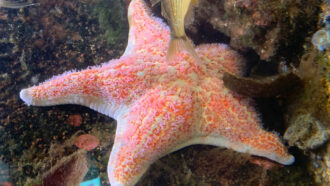 Animals
AnimalsChoked by bacteria, some starfish are turning to goo
For years, researchers thought gooey, dying starfish were infected. Instead, these sea stars are suffocating. And bacteria may be behind it all.
-
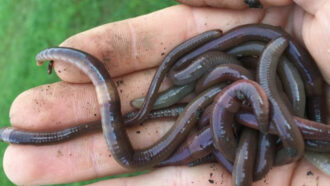 Environment
EnvironmentJumping ‘snake worms’ are invading U.S. forests
These bad-news invaders are spreading across the United States. As they turn forest debris into bare ground, soils and ecosystems are changing.
By Megan Sever -
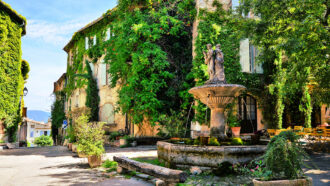 Humans
HumansChanging climates can take cooling tips from warm regions
When summer heat waves hit northern cities, people might look to keep cool using tropical building strategies — and forgotten architectural wisdom.
-
 Health & Medicine
Health & MedicineFour summer camps show how to limit COVID-19 outbreak
Schools might take a lesson from these overnight facilities in Maine. They kept infection rates low by testing a lot and grouping kids into ‘bubbles.’
-
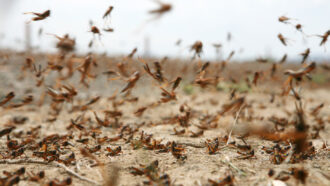 Animals
AnimalsA single chemical may draw lonely locusts into a hungry swarm
Swarms of locusts can destroy crops. Scientists have discovered a chemical that might make locusts come together in huge hungry swarms.
-
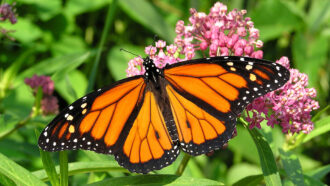 Environment
EnvironmentPesticides contaminate most food of western U.S. monarchs
Monarch caterpillars eat only milkweeds. A new study finds widespread pesticide use has tainted these plants across the insect’s western U.S. breeding grounds.
-
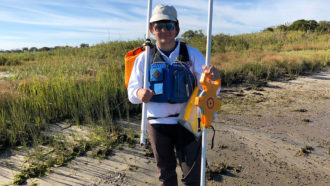 Science & Society
Science & SocietyFor teens, big problems may lead to meaningful research
Several teens who competed at the Regeneron Science Talent Search applied their STEM know-how to solve problems they or their communities faced.
-
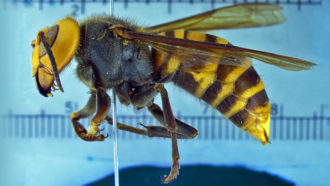 Animals
AnimalsWhat you need to know about ‘murder hornets’
Two new specimens of the world’s largest hornet have just turned up in the United States. Here’s what to make of them and other alien-hornet invaders.
By Susan Milius -
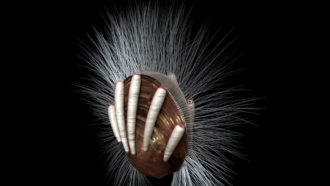 Fossils
FossilsTube-dwelling sea creatures may be oldest known parasites
A fossil bed of clam-like animals from a half-billion years ago is covered in tube-dwelling organisms. These suggest the tube dwellers were parasites, scientists now report.
-
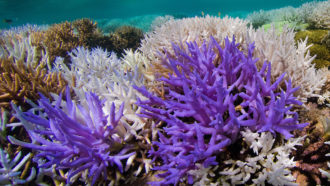 Oceans
OceansGoing bright may help corals recover from bleaching
When some corals bleach, they turn neon colors. Flashy hues may be part of a response that helps these corals recover and reunite with their algae.
-
 Health & Medicine
Health & MedicineDeadly heat: Expected by century’s end, it’s here already
Instances of hot and humid conditions that threaten human lives are on the rise.
-
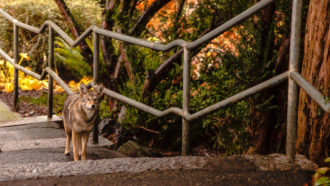 Life
LifeWhy you’re spotting more wildlife during COVID-19
People are seeing more animals than they did before the pandemic. There are many reasons why.